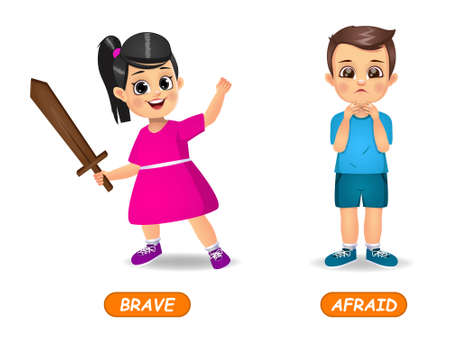1. Understanding the Impact of TBI on Families
When someone in the family experiences a traumatic brain injury (TBI), the effects go far beyond just the individual. Families often find themselves facing new emotional, social, and daily challenges as they support their loved one’s recovery. It’s important to recognize that everyone in the household may be affected in different ways.
Emotional Changes for Family Members
TBI can bring about sudden changes in mood, behavior, and personality for the injured person. Family members might feel a mix of emotions such as sadness, frustration, fear, or even guilt. Some families experience stress from seeing their loved one struggle with memory loss or difficulty communicating. These feelings are normal, but it helps to talk openly and seek support when needed.
Common Emotional Responses in Families:
| Family Member | Possible Emotional Responses |
|---|---|
| Spouse/Partner | Anxiety about the future, increased responsibilities, emotional fatigue |
| Children | Confusion, fear, sadness, changes in school performance |
| Parents of Adult Survivors | Worry about long-term care needs, grief over lost independence |
| Siblings | Jealousy over attention shifts, concern for injured sibling, feeling left out |
Social and Practical Adjustments at Home
The household routine can change dramatically after a TBI. Roles may shift as family members take on new caregiving duties or adapt to the survivor’s needs. This might mean rearranging work schedules, modifying the home for safety, or learning how to manage medications and appointments. Social life can also be affected—families may have less time for outside activities or find that friends don’t fully understand what they’re going through.
Examples of Practical Changes:
- Daily Schedules: More time spent on doctor visits and therapy sessions.
- Home Environment: Adjusting furniture or adding ramps for mobility.
- Financial Planning: Budgeting for medical costs and possible income changes.
- Communication Styles: Learning new ways to interact with the person who has TBI.
The Importance of Family Education and Support
Understanding how TBI affects everyone in the household is an important first step. When families are educated about brain injury and have access to community resources or support groups, they can better cope with these changes together. In future sections, we’ll explore practical tools and local resources available in the U.S. to help families navigate this journey.
2. Essential Family Roles in TBI Recovery
When someone experiences a traumatic brain injury (TBI), family members become a vital part of the recovery journey. Their involvement can make a real difference, not just for the person recovering, but also for the entire care team. Here are some key roles that family members often take on during TBI recovery:
Advocacy: Being the Voice of Your Loved One
After a TBI, communication or decision-making may be challenging for the survivor. Family members often need to speak up on their behalf, ensuring their needs and wishes are heard. This could mean:
- Talking to doctors about treatment options
- Requesting second opinions when needed
- Making sure the patient’s preferences are respected
- Helping with paperwork or insurance forms
Examples of Advocacy Activities
| Advocacy Activity | How Families Can Help |
|---|---|
| Attending Appointments | Taking notes and asking questions during doctor visits |
| Coordinating Care | Communicating between different healthcare providers |
| Navigating Insurance | Understanding coverage and fighting for necessary services |
Caregiving: Providing Daily Support
TBI survivors often need help with daily activities, especially in the early stages of recovery. Family caregivers step in to assist with:
- Personal care (bathing, dressing, eating)
- Medication management and therapy exercises
- Transportation to appointments or therapy sessions
- Offering emotional encouragement and companionship
The Many Faces of Caregiving Support
| Care Task | Description/Example |
|---|---|
| Physical Assistance | Helping with mobility or transfers from bed to chair |
| Cognitive Support | Setting reminders, helping with memory strategies, organizing schedules |
| Emotional Support | Listening, providing comfort, being patient with mood changes |
| Supervision & Safety | Monitoring for falls or risky behaviors at home |
Partnering with Healthcare Providers: Building a Team Approach
The best outcomes happen when families work closely with doctors, therapists, nurses, and social workers. Here’s how families can be strong partners:
- Sharing important information about their loved one’s history and personality
- Asking questions if something is unclear—no question is too small!
- Following up on home exercises or therapies suggested by professionals
- Providing feedback about what works (or doesn’t work) at home so care plans can be adjusted as needed
- Learning new caregiving skills through education sessions or support groups provided by hospitals or local organizations
The Power of Teamwork: Family and Professionals Working Together
| Who’s Involved? | Main Contribution to Recovery Process |
|---|---|
| Family Members | Loved-based support, advocacy, daily care |
| Treating Physicians | Create medical plans, manage medications |
| Therapists (PT/OT/ST) | Rehabilitation exercises and adaptive strategies |
| Nurses/Social Workers | Counseling, resources for community support |
| TBI Survivor | Puts effort into recovery; communicates needs when possible |
The journey through TBI recovery is not easy, but families who are informed and involved can bring strength and hope to every step of the process. With advocacy, caregiving, and teamwork with healthcare providers, they play an essential role in helping their loved one heal and thrive.

3. Education and Training Opportunities for Families
When a loved one experiences a traumatic brain injury (TBI), families often face new challenges and uncertainties. In the United States, there are many resources, workshops, and educational programs designed to help families understand TBI and develop effective strategies for supporting recovery. These opportunities not only provide knowledge but also connect families with professionals and peers who share similar experiences.
Key Resources for Family Education
Several national organizations offer valuable information and support to families dealing with TBI:
| Resource | Description | How to Access |
|---|---|---|
| Brain Injury Association of America (BIAA) | Provides webinars, fact sheets, and support groups focused on TBI education for families. | Visit BIAA website |
| Family Caregiver Alliance (FCA) | Offers online courses, tip sheets, and counseling services for caregivers of TBI survivors. | Visit FCA website |
| TBI Model Systems Knowledge Translation Center (MSKTC) | Presents research-based guides, videos, and printable resources about TBI recovery. | Visit MSKTC website |
| Local Rehabilitation Hospitals | Many hospitals offer in-person or virtual family education classes about TBI care and recovery. | Contact your local rehab hospital’s social work or patient education department. |
Workshops and Support Programs
Families can benefit from hands-on workshops that teach practical caregiving skills and coping strategies. These programs often include:
- TBI Family Workshops: Held by hospitals or community centers, these sessions cover topics like behavior management, communication tips, and self-care for caregivers.
- Peer Support Groups: Many national and local organizations run groups where families can share experiences, ask questions, and get emotional support from others who understand their journey.
- Web-Based Training: Online platforms such as the BIAA Academy or BrainLine provide interactive courses about navigating life after TBI at your own pace.
Sample Topics Covered in Educational Programs
- The basics of brain injury: symptoms, prognosis, and recovery timelines
- Communication strategies with TBI survivors
- Coping with emotional and behavioral changes after TBI
- Navigating healthcare systems and insurance in the U.S.
- Long-term planning for independence and quality of life
How to Get Started
If you’re new to TBI caregiving, reach out to one of the listed organizations or ask your healthcare provider for recommendations. Many resources are free or low-cost and available both online and in person across the U.S. Remember, learning more about TBI not only helps your loved one recover but also empowers you to feel more confident and supported throughout the process.
4. Support Networks and Community Resources
Families going through the recovery process after a Traumatic Brain Injury (TBI) often feel overwhelmed and alone. However, there are many support networks and community resources in the United States that can help families connect with others, share experiences, and get practical advice. These organizations offer education, emotional support, and guidance for both individuals with TBI and their loved ones.
American Community Organizations
Several national and local organizations specialize in TBI support. They provide resources such as educational workshops, counseling, and community events. Some well-known examples include:
| Organization | What They Offer | How to Access |
|---|---|---|
| Brain Injury Association of America (BIAA) | Information hotlines, family support groups, online resources, advocacy | Website, phone helpline, local chapters |
| TBI National Resource Center | Resource guides, webinars, links to state-specific programs | Website with searchable directory |
| Family Caregiver Alliance (FCA) | Support for caregivers, education on TBI care, legal/financial advice | Online resources, newsletters, support groups |
| American Red Cross | Disaster relief, emergency preparedness training for families with special needs | Local offices, website information |
Support Groups for Families and Individuals with TBI
Support groups are available both in-person and online. These groups give families a safe space to talk about their experiences and learn from others who understand what they’re going through. Here’s how to find them:
- BIAA Local Chapters: Many states have their own BIAA chapters that organize monthly meetings for survivors and caregivers.
- Hospital-Based Groups: Check with your hospital’s rehab department or social worker about group meetings for families of TBI patients.
- Community Centers: Some YMCAs or local health departments host disability or caregiver support meetings.
- Pediatric TBI Support: For children with brain injuries, school districts often connect parents to special education parent-teacher associations (PTAs).
Online Platforms Connecting Families Nationwide
The internet makes it easier than ever for families to get help no matter where they live. Online forums and social media groups provide 24/7 access to advice, encouragement, and practical tips.
| Platform/Group Name | Description | Where to Find It |
|---|---|---|
| BIAA Online Community Forums | User-friendly discussion boards for all ages; moderated by experts. | BIAA website member section. |
| TBI Survivors & Caregivers Facebook Groups | Large private groups for sharing stories and questions in real time. | Facebook search: “TBI Support” |
| CaringBridge.org | Create a free personal site to update friends/family on recovery progress; receive messages of support. | CaringBridge website. |
| Reddit r/braininjury Community | An active forum for exchanging ideas and information anonymously. | Reddit.com/r/braininjury/ |
| Mental Health America Support Groups Directory | A listing of virtual peer-support options across the U.S., including brain injury topics. | MHA National website directory. |
The Value of Community Connections in Recovery
No one should face TBI recovery alone. By reaching out to these networks—whether at a local center or through an online group—families can gain knowledge, reduce stress, and build friendships that last throughout the recovery journey. Support networks not only empower families but also help survivors achieve better outcomes by staying informed and emotionally supported every step of the way.
5. Strategies for Self-Care and Building Resilience
Understanding the Importance of Family Well-Being
Caring for a loved one with traumatic brain injury (TBI) is a journey that can take a toll on family members’ physical and emotional health. It’s important to remember that taking care of yourself is not selfish—it’s essential for providing the best support possible. Here are some practical approaches for families to maintain their well-being during TBI recovery.
Simple Self-Care Practices for Family Members
| Self-Care Strategy | How It Helps | Tips for Getting Started |
|---|---|---|
| Physical Activity | Reduces stress and boosts energy | Take short walks, try gentle stretching, or follow quick online exercise videos at home |
| Healthy Eating | Keeps energy levels stable and supports overall health | Prepare easy meals in advance, keep healthy snacks on hand, and stay hydrated |
| Rest & Sleep | Supports focus and mood management | Create a relaxing bedtime routine; even short naps can help recharge your body and mind |
| Mindfulness & Relaxation | Lowers anxiety and improves resilience | Practice deep breathing, meditation, or listen to calming music when you need a break |
| Social Connection | Prevents isolation and builds emotional strength | Reach out to friends, join local or online support groups, and don’t hesitate to ask for help from others |
Managing Stress Throughout the Recovery Journey
The uncertainty of TBI recovery can be overwhelming. Here are ways to manage stress day by day:
- Set Realistic Expectations: Understand that progress may be slow and setbacks are part of the process.
- Create a Daily Routine: Routines provide structure and predictability for both you and your loved one.
- Acknowledge Your Feelings: It’s normal to feel frustrated or sad. Talk about your feelings with someone you trust.
- Pace Yourself: Break big tasks into smaller steps and celebrate small wins along the way.
- Stay Informed: Learn about TBI so you know what to expect, but avoid information overload which can add stress.
Mental Health Support: Where to Find Help in the U.S.
If you find it hard to cope or notice signs of depression or anxiety, reaching out for professional help is a sign of strength. There are many resources available across the U.S., both in-person and online. Here are some options:
| Mental Health Resource | Description & How to Access |
|---|---|
| Primary Care Provider (PCP) | Your family doctor can refer you to counseling or therapy services covered by your insurance. |
| Counselors & Therapists | You can find licensed professionals through platforms like Psychology Today or through local clinics. |
| TBI Support Groups | The Brain Injury Association of America (BIAA) offers listings of support groups nationwide. |
| Crisis Hotlines & Text Lines | The 988 Suicide & Crisis Lifeline offers free, confidential support 24/7 by calling or texting 988. |
| Employee Assistance Programs (EAP) | If employed, check if your workplace offers free counseling services through an EAP. |
| Online Therapy Platforms | Services like BetterHelp or Talkspace connect you with therapists via phone, video, or chat—often at flexible hours. |
Building Resilience as a Family Unit
- Share Responsibilities: Involve other family members in caregiving tasks so no one feels overwhelmed.
- Cultivate Hope: Focus on small improvements and positive moments each day.
- Celebrate Milestones: Acknowledge every step forward, no matter how small—it helps build motivation for everyone involved.
- Create a Support Network: Don’t hesitate to ask neighbors, friends, faith communities, or local organizations for assistance with meals, rides, or errands.
- Pursue Family Activities: Find simple activities everyone enjoys together—even watching a favorite movie counts!
You Are Not Alone: Taking Care of Yourself Is Taking Care of Your Loved One Too
TBI recovery is a long road for everyone involved. By practicing self-care, seeking help when needed, and leaning on community resources, families can build resilience—and offer better support throughout the journey.


